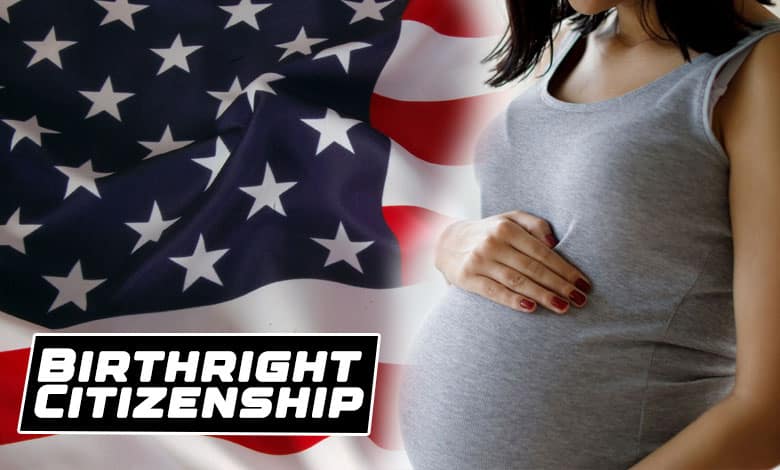Trump’s Birthright Citizenship Order Faces Legal Hurdles as Federal Judge Prepares to Rule
President Donald Trump’s executive order on birthright citizenship continues to unfold in U.S. courts, as a federal judge prepares to hear arguments on Thursday over the future of the directive.

Seattle: The legal challenge to President Donald Trump’s executive order on birthright citizenship continues to unfold in U.S. courts, as a federal judge prepares to hear arguments on Thursday over the future of the directive. The order seeks to end the automatic granting of U.S. citizenship to children born on American soil to parents who are in the country illegally or are in temporary legal status.
Table of Contents
What’s Happening in the Latest Case?
US District Judge John Coughenour in Seattle is set to hear arguments from lawyers representing the Trump administration, four states suing to block the executive order, and an immigrant rights organization challenging the order on behalf of a proposed class of expectant parents.
This latest hearing comes just one day after a federal judge in Maryland issued a nationwide pause in a separate but related case. That ruling also aimed to block the enforcement of a similar executive order, affecting pregnant women and their unborn children.
Judge Coughenour, who has previously questioned the constitutionality of the birthright citizenship executive order, will consider whether to extend the temporary restraining order he issued two weeks ago. That order blocked the implementation of the directive, calling it “blatantly unconstitutional.”
What’s at the Heart of the Case?
The Trump administration’s executive order seeks to deny automatic U.S. citizenship to children born on U.S. soil to parents who are in the country unlawfully or are in temporary legal statuses, such as those on student or tourist visas.
The dispute centers on the interpretation of the 14th Amendment to the U.S. Constitution, which guarantees citizenship to “all persons born or naturalized in the United States, and subject to the jurisdiction thereof.” The plaintiffs argue that the amendment clearly confers citizenship on anyone born in the U.S., a stance supported by a landmark 1898 U.S. Supreme Court decision, United States v. Wong Kim Ark. That case ruled that the only exceptions to birthright citizenship were children of foreign diplomats, children born during enemy occupation, and those born to members of sovereign Native American tribes.
The Trump administration, however, contends that children of noncitizens should not be considered “subject to the jurisdiction” of the United States and therefore should not be granted automatic citizenship.
Impact of Maryland’s Ruling
On Wednesday, U.S. District Judge Deborah Boardman in Maryland issued an injunction that keeps the executive order on hold while the merits of the case are being considered. The decision effectively blocks the enforcement of the order nationwide, at least for the time being. The Trump administration has not yet decided whether it will appeal the Maryland ruling.
Additional Legal Challenges
The case before Judge Coughenour in Seattle is just one of many legal challenges to the executive order. In total, 22 states and several organizations have filed lawsuits to block the directive. Four states—Arizona, Illinois, Oregon, and Washington—are involved in the case before Coughenour. Additionally, a lawsuit led by the Northwest Immigrant Rights Project has been consolidated with this case.
Eighteen states, led by Iowa, have filed a “friend-of-the-court” brief in support of the Trump administration’s position.
Broader Context: Birthright Citizenship in the U.S.
The issue of birthright citizenship is particularly significant given that the U.S. is one of about 30 countries worldwide that grants automatic citizenship to children born on its soil—a principle known as jus soli, or the “right of the soil.” This principle is most commonly found in the Americas, with countries like Canada and Mexico also upholding it.
As the legal battles continue, the outcome of these cases could have significant implications for immigration policy and the status of children born in the U.S. to parents who do not have legal immigration status.
What’s Next?
Judge Coughenour’s hearing on Thursday will focus on whether to extend the temporary restraining order against the president’s birthright citizenship executive order. The outcome of this and future legal proceedings will shape the ongoing debate over birthright citizenship and its future in the U.S.
